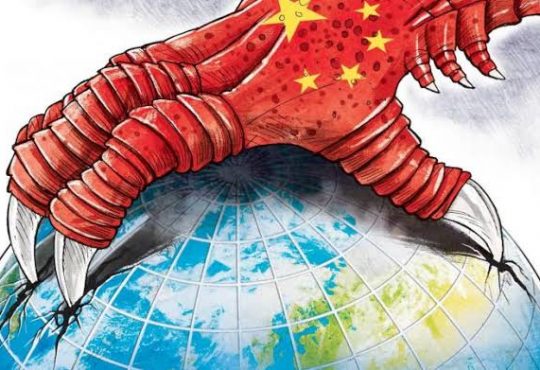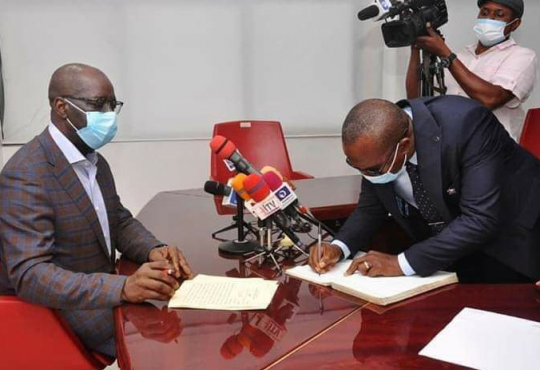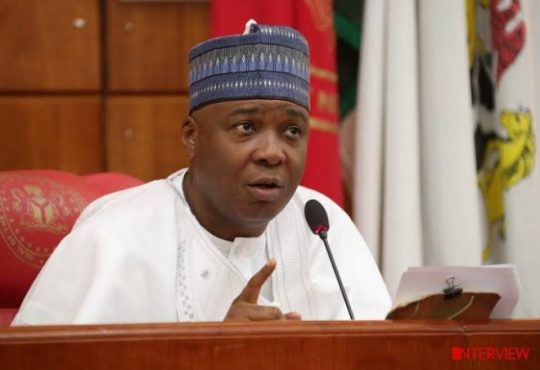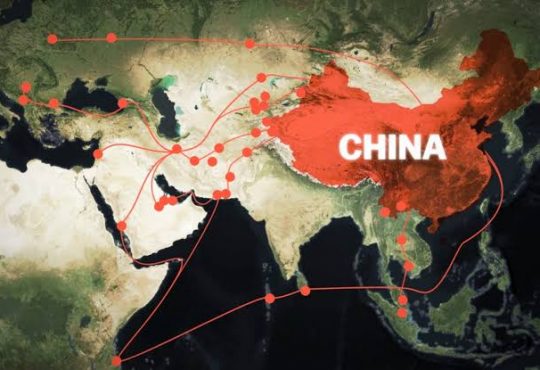
By Lucky Okoedion
Have you ever wondered why only few good governance advocates and activists end up as good leaders when given political power? As a matter of fact, data shows that most freedom fighters and activists in history everywhere in the world ended up as tyrants and terrorists when they got hold of political power. It was never their intentions to become tyrants or terrorists. It is due to the dynamics of what I have come to describe as “default thinking” and of course, other factors.
To get this idea clearly, do this exercise. Take pen and paper and list the tyrants and terrorist leaders you have heard about in recent times. Then google their early years. Study their history. They were once individuals who liberated their people from the grip of a common enemy or problem, only to themselves become a problem to their people. At times they do not know when they transition from being activists to being tyrants or terrorists because it is the same emotion, charisma and energy required to be an activist that is required to be a terrorist and a tyrant. This is a psychological fact.
On surface evaluation we can tell that concerning those who fail to translate the good governance that they preach to practice, it is either due to the fact that they were never sincere about what they professed, or they lacked the technical know how to implement their lofty ideas, or there is a default thinking and culture of mediocrity and corruption that holds everyone spell bound within the political leadership environment.
This phenomenon is so common in Nigeria that some people of faith have concluded that perhaps there is a spiritual and diabolic power in the seat of power at every level of leadership in Nigeria that causes well meaning and promising leaders to turn out as monumental failures.
But I choose to see it from a different perspective – the human perspective. What influences our actions and our inactions are the default thinking that dominates our environment. Governance being a collective effort, you always have to negotiate your ideas with everyone in the system. And given the gross effects of the political culture of greed, nepotism, mediocrity and all forms of corruption in the Nigerian political leadership landscape, bringing your ideas to effect when you get into political office could best be described as a process of war of ideas – your own innovative thinking at war with the default thinking in your political leadership environment. Such that you are more likely to succumb to the lures and the threats in that environment than to risk everything to do the right thing.
From personal experience, during my National Youth Service Corp (NYSC) year between 2014 and 2015, I was elected as the president of the MDGs/SDGs community development group in the Jos South Local Government area of Plateau State, Nigeria. I had an Exco and our duty was to lead hundreds of Nigerian university graduates from all over the country and some from abroad in community engagement, sensitization, seminars and other activism in line with achieving the MDGs/SDGs of the United Nations. I experienced this default thinking that threatened to paralyze my vision to take the group to heights never recorded before. My vision was to take our campaign to more schools and to go on the state owned television – Plateau Radio and Television (PRTV). It would also give many of the corp members an experience that will linger on for years and inspire them to do great things. As a matter of fact, I campaigned with these promises and won in the election.
First, I led the Exco to come up with means to increase our funding since we will be spending alot unlike our predecessors, which we achieved. But with money came the problem. I had as a Treasurer in the Exco a very good accountant by training. She had a different idea of success than I did. To her, success is when we are able to hand over a huge purse to our successor when our tenure is over. But to me, success is when we are able to fulfill our campaign promises even if it meant emptying our account. I also wondered, “how are we sure the next exco will make good use of the funds? Why not hand over a legacy of great achievements and better reputation to them than just funds? Besides, they will have their own startup funds when they come on board.” Unfortunately for me, this female accountant was very influential in the Exco. The issue split us into two factions.
I had to start negotiating with her and others. But more with her because I noticed that she was the fulcrum of the controversy. Together with my vice president and secretary who were on my side, I spent hours upon hours in meetings with her. Went to her lodge to visit her in the company of some Exco members. Eating with her, and all that.
I was practically preaching and begging to make her see how it is a greater success to hand over record breaking achievement than to hand over a fat purse. But on my part, I arrived at a compromise to use more of partnership than funding with our purse – which is what she preferred, though the regulations limited how much we could do in that regards. We would have to get such partnerships run through the authorities and the bureaucracy could kill the initiative. But I had to give in to that so she could also give in to my idea.
We resolved this issue and achieved our goal. It even made us better friends because some time later, when I visited her home state, she arranged for me to be lodged in her brother’s home. If I didn’t manage the situation well, it could have harmed our initiative and also our friendship.
I did all these though I had the power to go ahead without her support since the Vice president, the secretary and a larger fraction of our members were on my side. But there was the risk of possible blackmail. All it would take for me to be labelled as being financially corrupt would be for her to insinuate that there were financial improprieties. I didn’t want to risk that. That is why I went the extra mile to win her over. I am quite sure that political leaders face such situations. And could be arm twisted into giving up on their visions and campaign promises through such tactics. And before they know it, they begin to share in the default thinking that prevails in the political environment instead of projecting their own thinking to change or conquer that default thinking and give birth to the new Nigeria that we desire.
Default thinking is dangerous. It is extremely unwise to just believe in something because everyone else believes in it, or to just conform to your environment. For example, do you ever ask yourself “why do I have these beliefs and worldview that I have? Are they a product of my personal discovery and understanding? Or have they been imposed on me by my environment?” Am I a Muslim/Christian because I chose to be one or because my parents are Muslims/Christians?
Lucky Okoedion is a believer of a new Nigeria where true democracy is practiced. He writes from Benin City, Nigeria.







